تیتر سه تحلیل
-

OPEC at 65: building on a proud past for a successful future
SHANA (Tehran) - Sixty-five years ago, visionary leaders from five developing nations, namely Abdullah al-Tariki of Saudi Arabia, Juan Pablo Perez Alfonzo of Venezuela, Fuad Rouhani of Iran, Tala’at al-Shaibani of Iraq, and Ahmed Sayed Omar of Kuwait, founded OPEC at the historic Baghdad Conference from 10 to 14 September 1960.
-
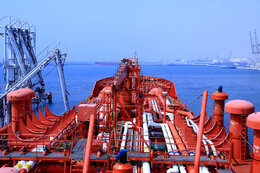
War on Iran Ignites Long-Term Global Oil Instability
SHANA (Tehran) – The recent air strikes by the Zionist regime on Iran’s industrial centers, oil and gas facilities, and civilians have sent shockwaves through the global oil markets. The attacks led to a significant but short-lived increase in prices.
-

War of Aggression on Iran and Global Energy Security
SHANA (Tehran) – Ever since the Zionist regime launched its invasion of Iran, energy has become a pivotal issue in international fora. Two key issues, energy price and energy security, were focused upon by the media, political elite, and economists due to Iran’s prominent role in energy production and exports and its strategic position in the Strait of Hormuz.
-
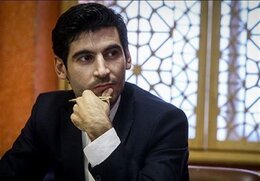
Analysis of the War on Iran
SHANA (Tehran) –The 12-day war imposed by the Tel Aviv regime against Iran on 13 June 2025, targeting mainly nuclear and military installations in addition to infrastructure, constitutes one of the most complicated geopolitical crises of recent decades. Iran responded forcefully to the strikes. Although the United States initially refused to engage in the war, there was no doubt from the very beginning that it was the main ally of the Zionist regime in this crisis. That is why, when it was convinced that Iran had the upper hand on the battlefield, the US intervened and bombed Iranian nuclear facilities. It is highly significant to review the Zionist regime and the US objectives and scenarios in the war on Iran.
-
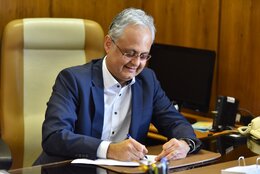
Attack on the Heart of Energy Security
SHANA (Tehran) – Energy security scholarship has long recognized the interconnected nature of global energy systems (Yergin, 2006; Winzer, 2012). The concept encompasses not merely the availability of energy resources but also the stability of supply chains, market predictability, and the resilience of energy infrastructure. Climate policy literature similarly emphasizes the need for coordinated international action and stable investment environments to achieve decarbonization goals (IPCC, 2022).
-
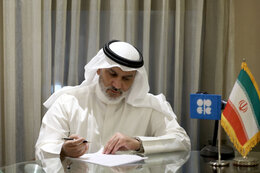
If oil disappeared tomorrow….
If oil disappeared tomorrow, there would be no more jet fuel, gasoline or diesel. Internal combustion engine automobiles, buses, trucks, lorries and coaches would be stranded. Airplanes powered by jet fuel would be grounded. Freight and passenger rail powered by diesel would halt. People could not get to work; children could not get to school. The shipping industry, transporting both freight and passengers, would be devastated.
-

Oil security: Vital for all
We took note of the International Energy Agency (IEA) reaffirming the significance of oil security to energy transitions in its most recent commentary: ‘A strong focus on oil security will be critical throughout the clean energy transition’.
-
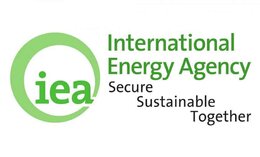
Oil demand growth slowing as non-OPEC supply expands, says IEA
Global oil demand growth is losing momentum, the International Energy Agency (IEA) said on as it trimmed its 2024 growth forecast, in sharp contrast to the view held by producer group OPEC.
-

Red Sea turmoil is the only thing keeping oil prices as high as they are
The attacks on ships in the Red Sea are a big geopolitical headache, and an economic one, too, as the chaos bleeds into markets by disrupting shipping flows and stoking inflationary pressure.
-
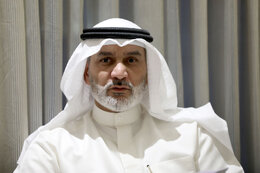
A history of ‘unrealized’ peaks
The idea of oil supply peaking, or so-called peak oil, surfaced as early as the 1880s, with some predicting a looming exhaustion in the US due to the demise of the Pennsylvania oil fields. US and global oil production, however, was still increasing over 70 years later, when the ‘peak oil theory’ of geologist Marion King Hubbert gained traction in 1956.
-

Iran and energy transmission
Iran’s geographical position has historically been a key factor in boosting the country’s standing. Iran has always been known to connect the West and the East as well as the North and the South. Historical records also show Iran’s important role in international trading in different periods, the most important of which has been the Silk Road.
-
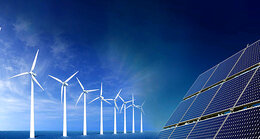
UAE and renewables; ambitions and challenges
Over recent years, investment in the renewable energy sector has increased across the globe. In the meantime, the Persian Gulf oil exporting nations, which have always relied on exporting energy, have adopted a new approach and formulated comprehensive plans to reduce carbon emissions and increase the share of renewables in their energy mix. The United Arab Emirates (UAE), a Persian Gulf littoral state and a key OPEC member country, has invested heavily in all sectors of the energy industry in recent years. In addition to reducing its dependence on non-renewable energy, the UAE is seeking to improve its position in international for a and present an environmentally friendly image of itself.
-
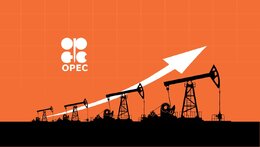
OPEC+ heavyweights join hands to stabilize oil market
International oil markets were caught by surprise when the OPEC+ ministers unanimously approved the production cut initiated by Saudi Arabia and Russia to continue curbing output. The move was further strengthened in mid-July 2023 when OPEC+ ministers met and reaffirmed their commitment to work an output management that would lead to a stable market and adequate supply of oil for the consumers. Major market players; companies, hedge fund managers, and Central Banks welcomed the decision and agreed that upon full recovery of the demand side from the pandemic, markets would welcome back the OPEC+ to retain its traditional role as the energy Central Bank of the world.
-
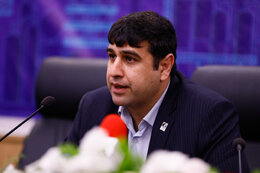
BRICS membership boosts Iran’s bargaining power
The BRICS group of nations recently decided to invite six countries – Argentina, Egypt, Iran, Ethiopia, Saudi Arabia, and the United Arab Emirates – to become new members of the bloc. The debate over expanding the BRICS bloc, comprising Brazil, Russia, India, China, and South Africa, topped the agenda at a three-day summit held recently in Johannesburg. One may wonder how China and Russia have been instrumental in this decision. Mohammad Sadeq Jokar, the head of the Institute for International Energy Studies (IIES), tells “Iran Petroleum” that Iran’s BRICS membership would chiefly bolster Iran’s international haggling power. The following is the full text of the interview:
-
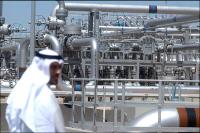
Kuwait energy outlook; impossible ambitions
Kuwait’s ambitious development plan “Vision 2035” is aimed at transforming the country into a globally important financial and trade center to attract domestic and foreign investment. At the frontline of Vision 2035, lies the Silk City project to which 250 square kilometers of land has been allotted in northeastern Kuwait with an estimated investment of $86 billion over a 25-year period.
-
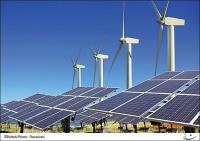
Energy in Kenya; Iran opportunities
Kenya is at the crossroads of East Africa, which has in recent years developed its economic service sector and made significant progress in the use of modern technologies. Although more than one-third of the country’s 46 million people still live below the poverty line, the middle class that has emerged in recent years accounts for three-fourths of GDP growth. The middle class also represents the country’s major energy consumer. The remarkable point about Kenya’s energy sector is its investment in renewables. Currently, more than 75% of the energy consumed in Kenya is supplied by renewables, which mainly include geothermal energy and hydroelectricity. The Kenyan government plans to switch to 100% clean energy by 2030. Kenya’s goal in its Vision 2030 plan for the energy sector is to increase investment in renewables.
-
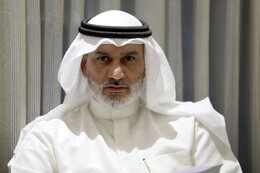
Head of OPEC warns of a ‘dangerous’ lack of investment in oil
The head of the Organization of the Petroleum Exporting Countries – a group of the world’s major oil producers – told CNN that a lack of investment in the oil industry posed a danger to global energy security and could send crude prices to $100 a barrel.
-
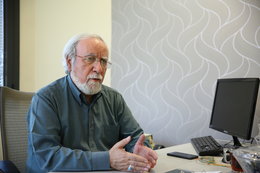
Iran-Saudi détente a positive step in increasing cooperation: Analyst
SHANA (Tehran) – An expert in international relations has described the rapprochement between Iran and Saudi Arabia as a positive step toward promoting cooperation.
-
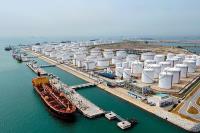
US SPR release; opportunity or challenge?
Ever since the outbreak of the war in Ukraine, global markets have been largely affected in various economic sectors as Russia, a top producer of fossil energy in the world, was slapped with Western sanctions, forcing the Kremlin to reconsider its oil and gas sales to certain states. While many expected the continued war to drive global energy prices up, a variety of measures including tapping strategic reserves by some countries like the United States did avoid any sharp price hike. However, it seems that the long-term use of this policy would not affect global markets and would instead affect the US domestic atmosphere in the run-up to the next presidential election.
-
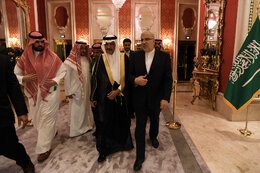
Arash gas field issue to be settled through political talks: Analyst
SHANA (Tehran) – A senior expert in West Asia affairs is convinced that the dispute over the Arash gas field, known as Al-Dorra in Kuwait and Saudi Arabia, will be resolved through holding political negotiations and reaching an agreement.
-
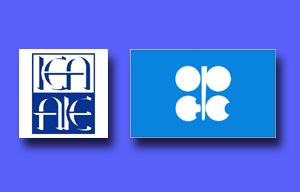
OPEC statement on peak fossil fuel demand
On the International Energy Agency’s recent Op-Ed published on 12 September 2023, asserting that fossil fuel demand would peak before 2030, OPEC notes that consistent and data-based forecasts do not support this assertion.
-
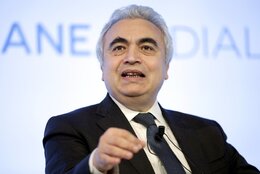
World at ‘beginning of end’ of fossil fuel era, IEA says
The world is at “the beginning of the end” of the fossil fuel era, according to the leading global energy watchdog, which for the first time has forecast that demand for oil, natural gas and coal will all peak before 2030.
-
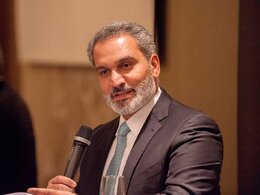
Energy transitions guided by realism
Everyone has an opinion on oil. Some think it is the only thing to blame for climate change. Others say using oil can just be stopped, and we should not invest anymore in new oil projects and leave the resource in the ground. Oil conjures up images of geopolitics, consumerism, historical world events, modernity, the television show Dallas and the actor Daniel Day Lewis’s performance in There Will Be Blood. Oil has featured in countless books, movies and songs, in almost every language on Earth. It is discussed everywhere from the kitchen table to the highest offices in every country in every land.